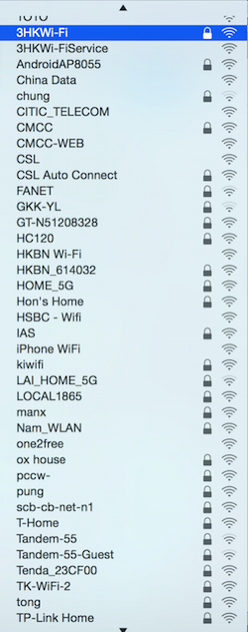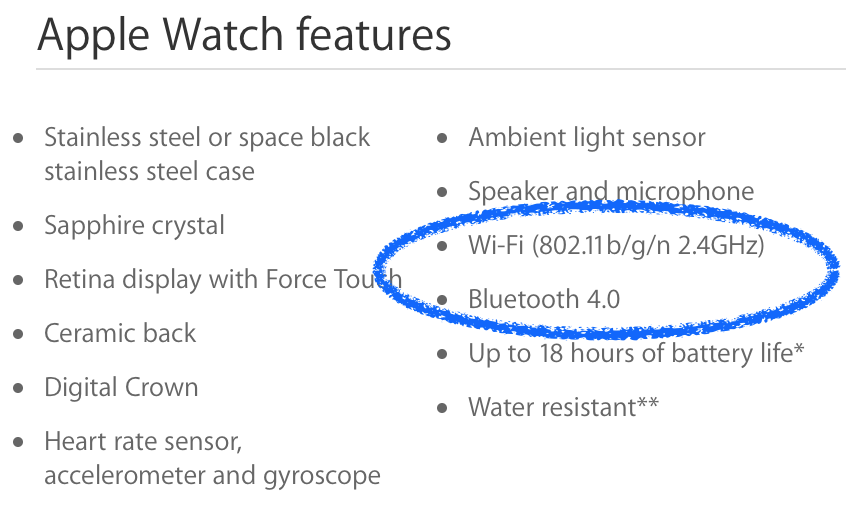Apple Watch will make public wifi even worse
Like many globe-traveling entrepreneurs, I use a lot of mobile data. In Hong Kong, my carrier slows down my data when I hit 6 gigabytes every month, so I hook up to public wifi whenever possible. While there are tens of thousands of wifi hotspots across the city, public wifi is slow in this dense and crowded gadget-loving city. It's common to see 100 or more wifi network choices in a given restaurant, mall, lobby or park as neighboring businesses and carriers compete for customers by offering them free wifi bundled with their product or service. The result is public wifi that is typically dozens of times slower than LTE.

Apple Watch promises to make already teeth grindingly slow public wifi a whole lot worse. Here's why:
Let's take a look at a hypothetical coffee shop. When public wifi first debuted, of 50 people in the coffee shop maybe 20 would be connected to the wireless network "surfing the web" (remember that?). In the iPhone era, of those 50 people, 40 are using the wifi network. for a total of 60 devices. Imagine of those 50 people 20 get Apple Watches. Now we've got 80 devices on the wireless network. But that number doesn't tell the whole story.
For the reasons I've talked about before, the Apple Watch depends on iPhone like an alien dinghy depends on its Martian mothership. Watch apps run on the iPhone pull all of their information: location, data, graphics and even animations from the iPhone. This is the case even when that information ultimately comes from the Internet. The user loads up an app on her Apple Watch, the app needs to find flight arrival times, the watch, via wifi (or bluetooth) asks iPhone to look up the data and send the result. The end result is that instead of the data traveling over the wifi network once from the Internet to the phone, it travels over the wifi twice. That's twice the bandwidth used, twice the traffic and twice the wifi congestion compared to the same amount of data loaded via a phone or computer.
To make matters worse, Apple didn't include support for 5ghz wifi on the Apple Watch, the new band being rolled out to mitigate some of the congestion problems, because of its limited battery. It only supports wifi on the overused 2.4ghz band, the same channel that cordless phones, bluetooth and other wireless home gadgets use, including the bluetooth headphones new Apple Watch owners will undoubtably buy.

I'm excited to get my Apple Watch, but am be interested to see how well it works, if at all, in areas with where overcrowded 2.4ghz wifi is already almost so slow and laggy as to be basically useless. My prediction is that suburban users won't see any problems, but Apple Watch users like me in places like Hong Kong and New York City will see connection issues and watch interface lag during peak rush hour times on public transit, high traffic malls and crowded airports.
Cue the cries of Lag-gate!
